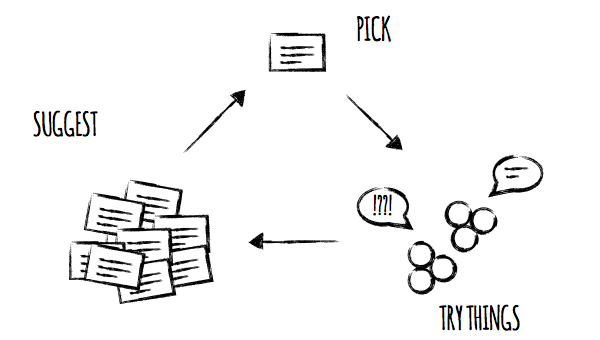5 Tips to Improve Your Foreign Language Learning
Now·a·days it’s almost impossible to get through school without learning a foreign language and monolingualism is far from the norm. And if you’re thinking of traveling or studying abroad, learning a new language is imperative. Actually speaking a foreign language fluently takes a lot of hard work and practice. Even if you study every day, it can take years to master some languages.
Last May, thinkrtv featured Tim Doner’s story, a seventeen-year-old hyperpolyglot* living in New York City who speaks more than 20 languages. You can hear his remarkable language skills on his Youtube page, PolyglotPal. For more on Doner, see this New York Times article.
But, for the rest of us that don’t poses Tim’s genius skills, after a while of practicing, we might start to get frustrated at our lack of progress and want to give up.
Don’t.
There are all kinds of rewards associated with speaking a second language. Not just intangible rewards, like being able to chat with locals when you travel, but psychological and health rewards as well. Studies show that being able to speak a second language may help you multitask and prevent dementia.
So if you want to reap all of the benefits of speaking a second language, how can you continue working on your language skills without getting burnt out?
Here are 5 tips to simplify your language learning.
1. Have a Word of the Day.
Trying to learn everything at once and getting overwhelmed by the sheer number of words in your new language can be overwhelming. Sometimes, even if you do learn new words, you forget them quickly because you haven’t heard them enough in context.
One way to get around this problem is to keep a few new words in your vocabulary by using them on a daily basis. Since it takes an adult an average of 150 times to learn to use a new word properly, having a Word of the Day or several words can help build your vocabulary. You can do this one of two ways. One, you can keep a running list of words you’d like to learn and designate one to be the word of the day. Or, two, you can wait for new words to come up organically in conversation, and then try to use the new word several times.
2. Speak the language as much as you can (especially with native speakers).
It goes without saying that the best way to learn how to speak a language is to actually speak it. Reading and studying grammar books will only get you so far.
And yet, it’s so easy to get trapped in the “not-good-enough” mindset, where you don’t speak because you think you don’t speak well enough. And then your speaking doesn’t get better. Make an effort to communicate with native speakers of your language. You’ll learn a lot more in a 5 minute conversation with a native Spanish speaker than you will from another English speaker who’s had 2 years of college Spanish. Try to spend 80% of your time speaking with those who speak the language better than you.
3. Listen to foreign language radio or TV, even as background noise.
Part of learning to speak a foreign language properly is learning the intonations and rhythms of the words. The remedy to that is to listen to the language as much as possible. Try to hear the pacing of the words, how they’re pronounced in different contexts, and what the different intonations are. How does the language sound when the speaker is excited, or angry, or asking an accusatory question?
Even listening to the language in the background will help you to pick up information on how the language is spoken.
4. Look up words you don’t know in a monolingual dictionary.
Figuring out the meaning of words can be tricky in a foreign language, since direct and accurate translations don’t always exist. While getting the word for physical objects, like milk or desk, might be straightforward, translating concepts can be a lot harder. By looking words up in a monolingual dictionary, you can make sure that the word or phrase you choose actually means what you think it does.
5. Carry around a notebook and write down new words you learn.
If you’re in the beginning stages of learning a language, this process might be too overwhelming, since you’re learning new words all the time. But once you get to an intermediate or advanced level, your learning process slows down. In the beginning, you progressed easily because you were learning simple verb tenses and lists of super useful vocabulary that you use every day and when you get past that stage, the learning suddenly gets more difficult.
When you’re advanced, keeping a record of the words you learn can also help you from getting frustrated and thinking that you aren’t learning anything new.
As long as you use the language, you’ll always be progressing.
*Hyperpolyglot a person fluent in six or more language / Featured photo credit: safe image by thnkrtv








